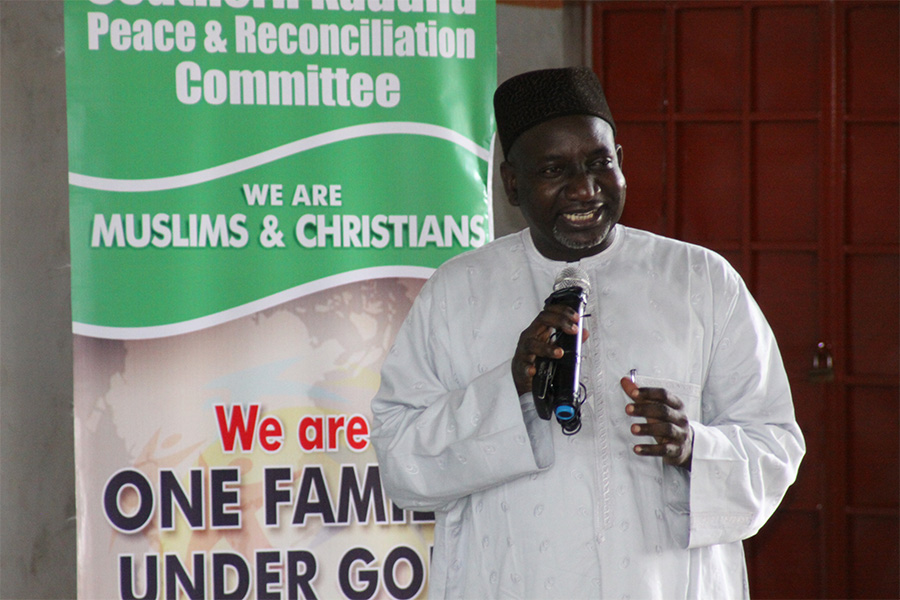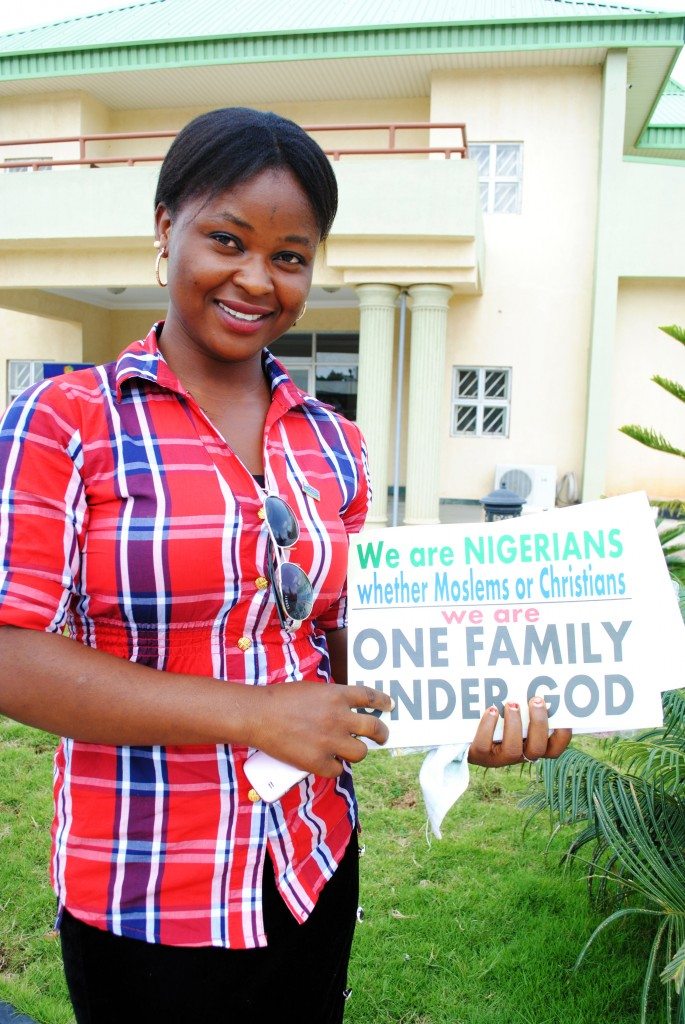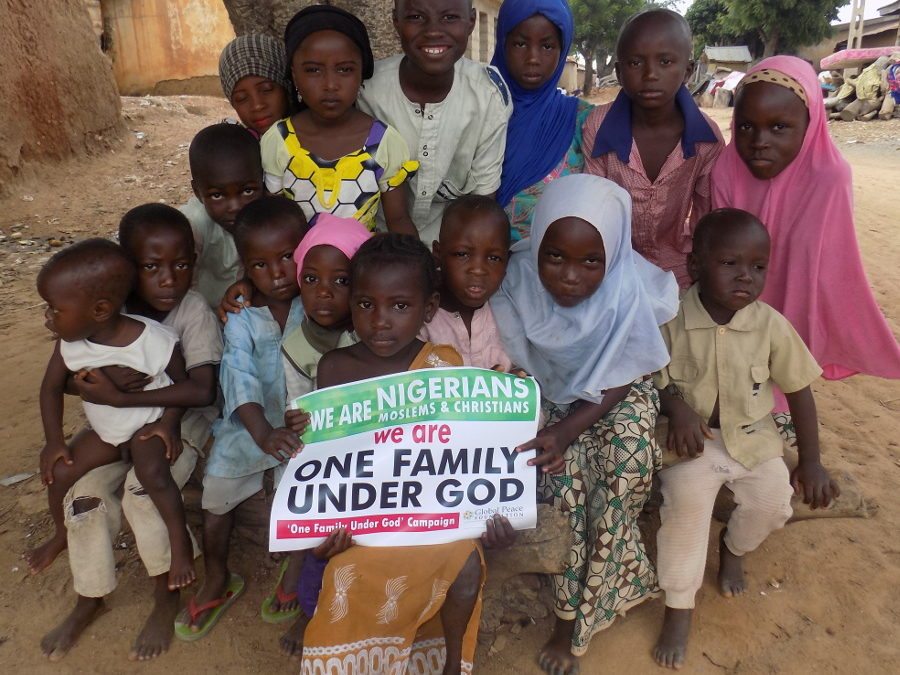You never change things by fighting the existing reality. To change something, build a new model that makes the existing model obsolete.
R.Buckminster Fuller
In the field of peace studies, it has long been recognized that – while everyone wants peace, most people do not know what it actually looks like and the necessary conditions for peace.
As we all know, building peace from the ground up is not easy. All the hot and cold conflict zones that exist around that world attest to this. Yet, as idealists, we continue to engage in the peacebuilding process around the globe in efforts to apply a global vision, universal principles and shared values to address specific community issues.
In Southern Kaduna in Nigeria, one of the most diverse states in all of Nigeria, 2016 and 2017 were particularly fraught times. There were killings, reprisals, destruction of property and fear, anger and unrest. And most of all, the people were tired of the conflict.

One Family under God campaign in Nigeria.
It was late in 2017 that, through connections that had heard of Global Peace Foundation’s work with the One Family Under God campaign in other parts of Kaduna state, the GPF Nigeria team began to engage with communities in Southern Kaduna. Through the long and arduous process of dialogue with different groups, negotiations and agreements, the communities began to form a dialogue platform that they dubbed the “Southern Kaduna Peace and Reconciliation Committee.”
This committee is made up of Muslim and Christian representatives from youth, faith, women and traditional leaders of different tribes and has been critical in handling delicate situations that had plagued Southern Kaduna for months.
In a recent review of data collected by Crisis Watch, an organization that tracks global conflict, GPF was able to ascertain some of the results of the work with the Southern Kaduna Peace and Reconciliation Committee.
In the 18 months leading up to the formation of SKPRC, and the training and programs the GPF Nigeria team provided for them, killings in Southern Kaduna state made up 54% of the total number of killings in the Middle Belt region of Nigeria. And yet, in the 18 months after the GPF intervention, even while there was a 22% increase of killings as a whole, the number of killings in Southern Kaduna dramatically dropped to make up only 1% of the total number of killings.
These numbers are just one of the many remarkable results that we are beginning to see in Southern Kaduna. Increased dialogue and engagement between the community leaders and security agencies resulted in non-violent local elections and local communities have taken up the call to own the vision of One Family Under God for themselves, celebrating peace through a multi-cultural celebration of the International Day of Peace in 2018.

One Family Under God campaign participant at the Second Interfaith Youth Leaders Retreat in Kaduna State.
Models like this one allows us to test the validity and efficacy of this approach. The GPF approach of articulating a global and yet personal vision of One Family Under God and creating shared agreements on universal principles and shared values is something that can be applied to other contexts. Some of the critical lessons learned in Nigeria are even making their way over in consultation with key Korean faith leaders working towards Korean reunification and reconciliation.
Yet it is worth mentioning that programs like those conducted by GPF are emphatically not looking to make carbon copy communities but, in fact, are seeking its opposite: to encourage and inspire the development of a uniquely local model of peace and community-building. These models are intended to go beyond the one location by sharing lessons from different GPF “peacebuilding laboratories” around the world.
In this way, peacebuilding leaders intend the lessons learned in one model to allow them to then share practical, concrete lessons for our global family.

